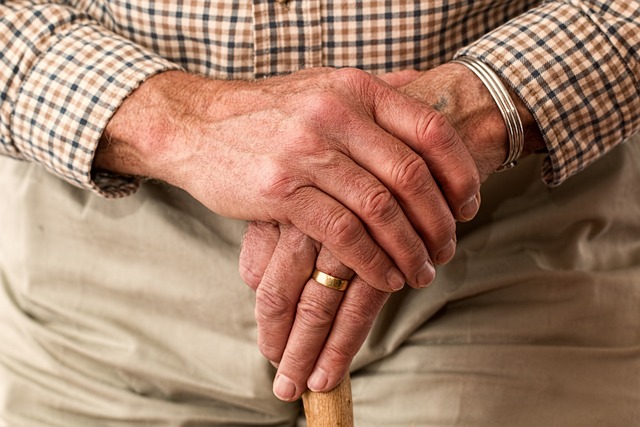Elderly Companion Services enhance medication adherence among seniors by providing tailored support through daily reminders and emotional assistance. These services integrate advanced reminder systems—via phone calls, text messages, or wearable tech—to help older adults manage complex medication routines and proper dosages, leading to better health outcomes. They also facilitate active communication with healthcare providers, encourage appointment attendance, and ensure prescription refills are managed on time. The human element of these services offers not only reminders but also a comforting presence to alleviate stress associated with managing medications. These companion services are particularly beneficial for seniors wishing to age in place, as they contribute significantly to their overall well-being and quality of life. With the incorporation of telehealth features and smart technology like pill organizers and automated dispensers, Elderly Companion Services not only empower older adults to maintain independence but also present a cost-effective solution that can reduce hospital readmissions related to non-adherence. These services are adaptable for various technological comfort levels and play a pivotal role in supporting the healthcare management needs of the elderly population, ensuring they adhere to their medication schedules effectively.
Navigating the complexities of medication management can be a challenging task for seniors, with adherence often hindered by routine complexity or cognitive changes. This article explores how elderly companion services play a pivotal role in enhancing medication adherence through personalized support and technology integration. We delve into the transformative impact of modern solutions tailored to the unique needs of the aging population, ensuring they receive their medications on time and improving their overall well-being.
- Enhancing Medication Adherence in Seniors through Elderly Companion Services
- The Role of Technology in Medication Reminders for the Elderly
- Personalized Elderly Companion Service Solutions for Effective Medication Management
Enhancing Medication Adherence in Seniors through Elderly Companion Services

Elderly Companion Services play a pivotal role in enhancing medication adherence among seniors, a group particularly vulnerable to non-adherence due to complex medication regimens and various health conditions. These services offer personalized support tailored to the individual needs of older adults, ensuring that they understand their medication schedules and dosages. By providing daily reminders, companion services act as a bridge between seniors and their healthcare providers, facilitating timely and consistent medication use. This proactive approach not only improves health outcomes but also fosters a sense of security and independence for the elderly, who often prefer to remain in their own homes rather than transitioning to assisted living facilities.
Companion services are equipped with sophisticated systems that can send alerts and reminders through various means, including telephone calls, text messages, or even wearable devices. These reminders are not just about the timing of medication; they also include prompts for seniors to engage in follow-up appointments, refill prescriptions, and maintain a dialogue with their healthcare professionals. The human element of these services is equally significant, as companions can provide emotional support, helping to alleviate any anxiety or confusion related to managing medications. This holistic approach to medication management not only enhances adherence but also contributes to an overall improved quality of life for seniors.
The Role of Technology in Medication Reminders for the Elderly

The integration of technology into elderly companion services has revolutionized medication management for seniors. Smart pill organizers and automated dispensers with reminders are now commonplace, offering a reliable method to ensure medication adherence. These devices often come equipped with alerts that can be set to remind the user multiple times a day, providing a safety net for those who may forget due to the natural cognitive changes associated with aging. Additionally, these systems can alert caregivers or family members if a dose is missed, fostering peace of mind for both the elderly individual and their loved ones.
Furthermore, some elderly companion services have expanded beyond simple reminder systems to incorporate telehealth capabilities. This allows healthcare providers to monitor medication schedules remotely, offering an additional layer of oversight and intervention if necessary. These services can also integrate with electronic health records, ensuring that all parties involved in the care of the senior have up-to-date information regarding their medication regimen. The technological advancements in medication reminders are not only enhancing the independence of seniors but are also proving to be a cost-effective solution for healthcare systems, reducing the likelihood of hospital readmissions due to non-adherence to prescribed medications.
Personalized Elderly Companion Service Solutions for Effective Medication Management

Personalized elderly companion services have become increasingly integral in facilitating effective medication management for seniors. These tailored solutions are designed to cater to the unique needs and routines of each individual, ensuring that medication reminders are not just set, but also contextualized within the senior’s daily life. By leveraging advanced reminder systems integrated with medication schedules, these services help avoid missed doses and potential health complications. The companion services often involve a combination of technology, such as smart pillboxes and mobile applications, coupled with human interaction to provide reminders that are both timely and compassionate. This dual approach not only enhances adherence to prescribed medication regimens but also fosters a sense of security and support for seniors who may otherwise manage their medications independently.
Furthermore, these companion services can be customized to accommodate the varying levels of technological proficiency among seniors. They offer scalable solutions that range from simple visual or audio cues to sophisticated systems capable of tracking medication intake, alerting caregivers or family members in case of missed doses, and even coordinating with healthcare providers for updates on medication changes. This level of personalization and proactive engagement in medication management can significantly improve health outcomes for seniors, making elderly companion services a valuable resource in maintaining the independence and well-being of older adults.
Effective medication management is pivotal for seniors, a demographic that often benefits from tailored assistance. This article has explored the multifaceted role of elderly companion services in enhancing adherence to prescribed medications through personalized care and leveraging technology. By integrating these services into daily routines, seniors can experience improved health outcomes, greater independence, and a higher quality of life. As we consider the future of healthcare for this population, it’s clear that elderly companion services are not just aids but essential components of a holistic approach to senior care. These services stand out as a commendable solution in the realm of medication reminders for the elderly, ensuring that each dose is taken with precision and care.
